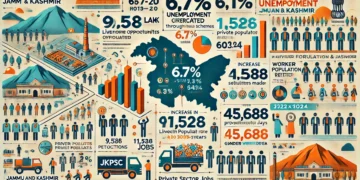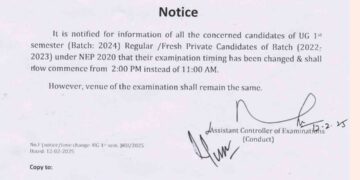Farooq Abdullah of the National Conference officially opposed Delhi’s revocation of Kashmir’s autonomy under Article 370 in 2019, calling it a “betrayal.”
But privately, he struck a different tone, according to A.S. Dulat, the former chief of the Research and Analysis Wing, in his new book, The Chief Minister and the Spy.We would have helped (passed the proposal).
According to the Juggernaut-published book, he asked Dulat, “Why were we not taken into confidence?”
Dulat reports that Abdullah and his son Omar Abdullah met with Prime Minister Narendra Modi just days before the abrogation.
“What happened, no one will ever know,” he writes. Abdullah was held for seven months following the abrogation. During this time, Delhi cautiously investigated his stance.
“They wanted him to accept the new reality,” Dulat explains. Farooq Abdullah was unable for comment on the situation.Dulat’s frank book reveals a complex story of struggle and bloodshed, personal ties and betrayal, pragmatism and realpolitik.
Abdullah, who is larger than life, dominates everything. According to, Indira Gandhi's sacking of Abdullah's cabinet in 1984 was a "betrayal" that Abdullah would always remember. Atal Bihari Vajpayee intends to replace Abdullah with his son Omar Abdullah. "Vajpayee became more of a father figure to Omar than his own father," Dulat relates.Omar rose to fame after accompanying Vajpayee abroad, being appointed junior foreign minister, and being dubbed Kashmir’s “new face.” Abdullah, meanwhile, was enticed with the prospect of a vice-presidential nomination.
“It was a bait,” acknowledges Dulat. “Farooq saw it as a path to Rashtrapati Bhavan [the presidency].”However, the nomination never arrived, signalling yet another treachery.
However, Dulat believes that New Delhi continued to communicate with and oversee Abdullah throughout the process.
Dulat comments on the importance of understanding his past and legacy when navigating him. Overt treachery was “unthinkable” for Abdullah because of his pride in Kashmir’s autonomy, but Delhi learnt to exploit his pragmatism — and grudging knowledge of realpolitik — to gain compliance.
Dulat closes by saying: “Once you factored all this in, it became easier to navigate for your own ends.”But not usually. Following his release in early 2020, Abdullah declined to officially support Delhi’s move.
“Whatever I say, I will say in Parliament,” he informed Dulat. Nonetheless, he covertly formed the People’s Alliance for Gupkar Declaration (PAGD), which brought together opponents such as PDP leader Mehbooba Mufti to urge the restoration of the region’s autonomy and statehood. That is a demand that still exists.
But Dulat’s book contains a deeper, and more concerning, insight: it admits that perhaps the region’s most enduring conflicts were shaped not by vast ideological differences, but by fractured trust and missed opportunities, as well as by leaders who were sometimes too principled for their own good, and at other times too pragmatic.
And, as the language between the lines clearly indicates, each blunder merely added context to the widening chasm. According to Dulat, Abdullah once told him, “You people in Delhi think you’re playing chess, but this is a game where even the pawns have memories.” (Hindustan Times).










































